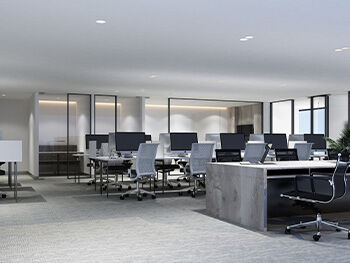Changing the office space market for a more flexible future
 The way owners of office space view the value of their estate needs to adapt to meet emerging needs, according to BCU experts Professor David Higgins and Peter Wood.
The way owners of office space view the value of their estate needs to adapt to meet emerging needs, according to BCU experts Professor David Higgins and Peter Wood.
In an article for The Property Chronicle, they argued that traditional space, financial and lease demands are becoming increasingly obsolete as a new generation of workers demand flexibility – a process which has been accelerated by consequences of the Covid-19 pandemic. Owners and investors, therefore, need to understand this new market in order to continue to gain a good return on their assets.
David said: “Commercial Real Estate is being affected by Covid in such a way that it's changing the mode of operation and ownership. This is creating new operating structures for property investors where they may see improved returns, but for higher risk and over shorter durations.
“This is about bringing real estate investment market into 21st Century and creating additional opportunities for property investors to maximise their returns.”
By 2025, Millennials will make up 75% of the workforce, and this new generation of workers is increasingly challenging the traditional work contract, building freelance or portfolio careers, and able to work from anywhere thanks to new technology. New workplaces are also increasingly informal, with greater demand for meeting and social space.
The Covid-19 pandemic has introduced an additional element of uncertainty, showing the importance of disaster preparedness and potentially suppressing demand for office space in future. As more staff work from home, and tenants are uncertain about their future space needs, occupiers who do still require office accommodation are likely to demand it on a more flexible basis.
All of this means that property owners need to accept a future business model where they are more than just passive suppliers of real estate, with the services and technology on offer as important as the building itself.
Peter added: “The workplace environment has had to change to accommodate the restrictions around Covid, and co-working environments with flexible lease structures allow that to occur because of their inherent flexibility. Rather than each individual company having to make their own changes, they can transfer this risk to the building owner.
“This means a potentially greater return for landlords but they need to do it anyway or they will get left behind – decreasing numbers of companies want long-term leases, and we’re seeing the same with the retail market. Rather than an antagonistic landlord-tenant relationship, it’s in everyone’s interests to have a partnership which works for them both.”
Read the full article (free registration required).